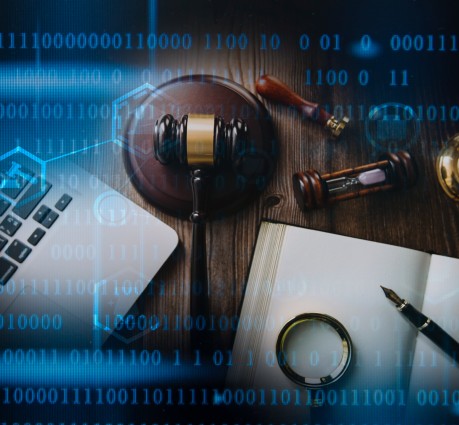The one-year PG Diploma in Cyber Law is a specialized postgraduate program that offers comprehensive knowledge of cyber laws, data protection regulations, and technology governance. It focuses on developing legal expertise to address cybercrime, intellectual property rights, online privacy, and e-commerce issues. The curriculum covers a broad range of topics, including cyberstalking, cyberbullying, hacking, phishing, and the protection of intellectual property rights in the digital realm. Students learn about relevant laws and regulations such as the Information Technology Act of 2000 and the Cybercrime Prevention Act of 2012. They also acquire skills in legal research, writing, and analysis to interpret complex legal documents and provide cyberlaw solutions. Upon completion, graduates can identify and mitigate legal risks associated with emerging technologies, ensuring compliance and advising on data protection, intellectual property, and online privacy. Career opportunities include roles as cyber law consultants, legal advisors, data privacy officers, compliance officers, or cyber security professionals in law firms, technology companies, government agencies, and financial institutions. In conclusion, the PG Diploma in Cyber Law empowers individuals with the necessary knowledge and skills to excel in cyber law careers, offering a solid foundation in cyber laws and regulations within the dynamic digital landscape.
Duration of programme
Level of Study

Cybercrime and digital evidence: Students will learn about different types of cybercrimes, such as hacking, identity theft, and cyber stalking. They will also study the methods used to gather and analyze digital evidence in cybercrime cases.
Information Technology Act, 2000: Students will study the Indian laws related to cyberspace, including the Information Technology Act, 2000, and the rules and regulations made under it.
Data protection and privacy: This topic covers the different aspects of data protection and privacy in cyberspace, including the rights of individuals, the obligations of organizations, and the role of the government in regulating data protection.
Students will learn about the various intellectual property rights in cyberspace, including copyright, trademark, and patent, and the legal frameworks governing them.
Graduation (in any discipline)
45% (Gen) / 40% (SC/ST) marks.